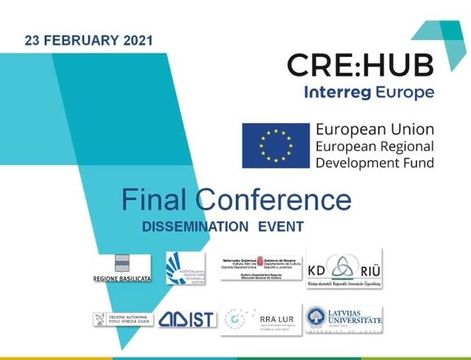
A great success for the CRE:HUB final conference
Last 23rd February the Final Conference “Culture and creativity: opportunities, future challenges and development scenarios” took place online.
CRE:HUB brings together eight regions that consider Cultural and Creative Industries (CCI) a strategic sector of development and want to create new enterprises and to support the existing ones working in this field.
CCIs are those industries that use culture as an input and have a cultural dimension, although their output is mainly functional
"This classification includes architecture and design, which integrate creative elements into wider processes, as well as subsectors such as graphic design, fashion design or advertising. At a more peripheral level, many other industries, among others those of tourism and new technologies, rely on content production for their development and are therefore to some extent interdependent with CCIs".
According to EU Commission document COM (2010) 183 final, Green Paper -The cultural and creative industries, unlocking the potential
€1,484,484.00
SME competitiveness
Partners, experts and stakeholders will learn one from each other
Main CRE:HUB outputs will be achieved through an approach based on sharing improvements every step of the way among the different regions involved.
The project will implement working sessions of policy stakeholders as well as on-field evaluations and peer reviews of the policy systems.
The results and the changes will be accessible and oriented to whole regional CCIs policy and productive systems.
Action Plans implementation
Each region will improve eight programmes for Investment for Growth and Jobs that will concretely result in improvements of the management of policy instruments and in implementation of new projects Policy changes will be tailored to meet specific CCIs needs.
The project is developed in two phases
1st phase (April 2016 - September 2018) main activities
Production of regional analysis including:
During the Phase 2 (October 2018 – September 2020) the implementation of Action Plans will take place.
ERDF Operational Programme 2014-2020 is a tool for the implementation of development and cohesion policy, implementing art. 174 of the Treaty and of Reg. 1303/2013 and 1301/2013. As part of the European strategy for smart, sustainable and inclusive growth, the ERDF OP Basilicata intervenes on the following Thematic Objectives set out in Article 9 of Reg 1303/2013: TO1, TO2, TO3, TO4, TO6, TO7, TO9, TO10. In particular, out of the TO 3 it promotes the competitiveness of SMEs, including businesses of creative and cultural sector. Specifically, CCI SMEs may benefit of the following interventions: a) support for the development of products and services in order to exploit identified cultural and natural attractors, among others, through the integration between companies belonging to the cultural, tourist, creative and performing arts and of the traditional and typical product chains; b) measures of support to the establishment of new business both through direct incentives, services, and micro-finance. Furthermore, in the RIS3 the Basilicata Region has identified "the cultural and creative industry” among the five areas of specialization, as belonging to a productive segment relevant to the economy of the region and with high growth potential.
Action 2.1 (TO 3;IP 3a) includes a measure to foster creation of new firms and development of existing ones in CC sectors,by providing dedicated incubation services.The measure aims at supporting CCIs needs in first life phases (creation of partnership, collaborations with other sectors,internationalization, entrepreneurial capacities,access to credit)and it represents a groundbreaking initiative for P2,implying instruments P2 is not familiar with and therefore aims at improving through CRE:HUB
The Regional Operational Program 2014-2020 is one of the programs that will allow Romania to access the European structural and investment funds coming from the European Regional Development Fund, in the period 2014-2020. Investment priority 2.1: Promotion of the entrepreneurial spirit, especially by enabling the economic exploitation of new ideas and by encouraging creation of new enterprises, including business incubators will support investments in microenterprises, in the smart specialization field but also business incubators and business accelerators.The policy instrument should enable both the access of CCI companies to investments but also to support services within business incubators and business accelerators. In this sense, it has to be created synergies between the investment priorities of the ROP but also with other programs like Operational program for Competitiveness 2014-2020 in order to support further research and demonstration activities and finally the market uptake of the new ideas. The policy improvement will target mainly the management of the program. According to the Governmental Decision 1183/2014, the management of the ROP 2014 -2020 will be insured by the Ministry of Regional Development and Public Administration and the 8 Regional Development Agencies that will act as Intermediate Bodies. Regional Development Agency Centru is the Intermediate Body for ROP 2014-2020 in the region Centru of Romania.
The programme aims to stimulate the economies of the less developed regions in Hungary. Its most important priorities are the competitiveness of small-and medium sized enterprises, research and innovation, and employment. The programme also aims to develop the tourism industry, enterprises' energy efficiency, and information and communication technologies. Among the funding priorities of the Programme we will focus on the priority tackling “Increasing the competitiveness and productivity of SMEs” One of objectives tackled by the priority is the development of creativity and business competences but creative industry is only mentioned broadly without any specific recommendations lacking detailed tasks, field actions or target groups. The policy should be therefore improved by focusing CCI in a more detailed way in order to allow the development of the sector
TO3 will support competitiveness of SME’s through promotion of CCI. It is indicated in the EC Policy Handbook that culture and creative industries may have a significant impact on smart, sustainable and inclusive growth in all European regions and cities. Alongside its potential to encourage economic development, creative industries represent a socially responsible and inclusive area of activities; they promote social innovation and perform non-polluting environmentally-friendly processes. In LV enhancement of competitiveness of SMEs should be linked with the development of creative industries and other innovation -based and high added-value activities, and it is also necessary to ensure adequate preconditions for the development of cultural infrastructure by promoting smart, sustainable and inclusive growth. Support in the framework of this specific support objective will contribute to achievement of StrategyBalticSeaRegion goals, facilitating increase of interregional trade volume.
“Enhancement of SME competitiveness” is Objective 3 of the Navarra ERDF 2014-2020 operational programme and it is targeted towards the improvement of productivity and efficiency of SMEs as well as to adapt the productive system towards higher added value activities. One of the investment priorities under this thematic objective is “3.4 supports to SMEs for growing in regional, national and international markets as well as in innovation process”. The specific objective is to promote the growth and consolidation of smes, particularly improving their financing, technology and access to advanced services, including the following sectors: agrofood, fishing, marine, maritime, tourism, cultural, commercial and rehabilitation of building, as well as freelances / self employed dedicated to peddling. The policy instrument should enable both the access of CCI companies to investments but also to support services within business incubators and business accelerators. In this sense, synergies need to be created betwee the investment priorities of the ROP but also with the recommendations that will be included in the RIS3 (MODERNA PLAN under development) in order to support further research and demonstration activities and finally the market uptake of the new ideas.
The policy (Measure 2.3.3. of Operational Prog.) aims at supporting and stimulating entrepreneurship with a particular focus on start-ups. The OP states that Slovenia lays behind in entrepreneurial dynamics because a satisfying entrepreneurial culture is lacking. Therefore the document aims at improving the support environment for the development of new enterprises (start-ups). Within such aim, the establishment of clusters and further development of support environment is necessary. The policy is relevant for business in general and for the creative sector as well. Since the creative sector contains its own specifics, the policy framework should be improved by better incorporating the specifics of the sector (tailored policy). That is not possible without strong cooperation with the creative enterprises, clusters, communities and individuals. As the creative sector is grounded on creativity and (self) expression it is well capable of reflecting and co-developing policies stimulating the development of the respective sector. Therefore the result would be a sub-policy document in which strategic and implementation measures for the creative sector would be incorporated. The key part of this operation would be adopting up-to-date open-innovation and collaborative planning techniques by which a sub-policy would be formed and legitimized.
POR Lisboa 2020 is the financial instrument to support regional development in the Lisbon and Tagus Valley Region of Portugal, managed by CCDR-LVT, that will invest in the competitiveness of SME in the region (internationalisation, innovation and R&D). Creative industries are identified (in RIS3 and Op Plan Lisboa 2020) as a priority, but the exploration of opportunities for this sector need to be further improved. Although significant progress has been achieved, this sector is not yet leverage to its full potential, leaving great room for policy improvement.

Last 23rd February the Final Conference “Culture and creativity: opportunities, future challenges and development scenarios” took place online.
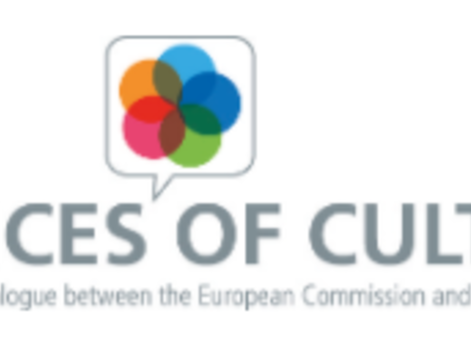
Culture and the Sustainable Development Goals: Challenges and Opportunities

CCRE-S3 is a new opportunity related to cultural and creative experiences for local communities
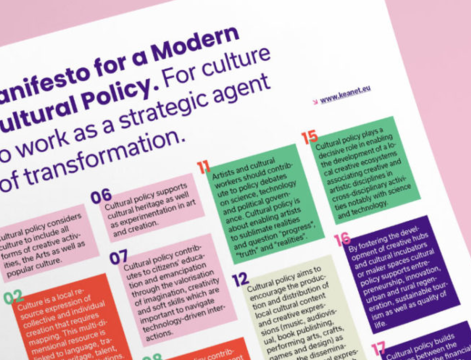
Culture as a first necessity investment
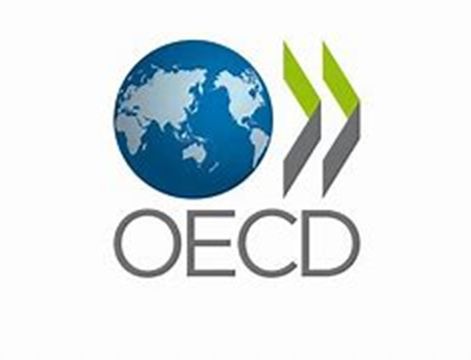
Emerging opportunities involving CCS
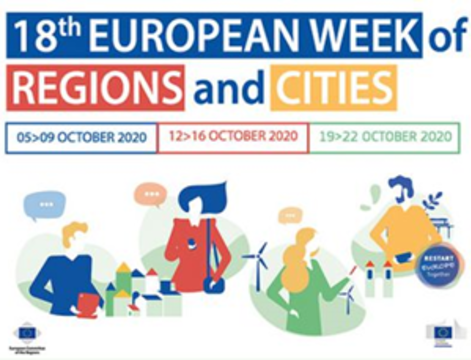
The European Week of Regions and Cities is the biggest event on EU regional and urban policy, open to all stakeholders.

Crowdfunding and ESF opportunities: future perspectives for managing authorities
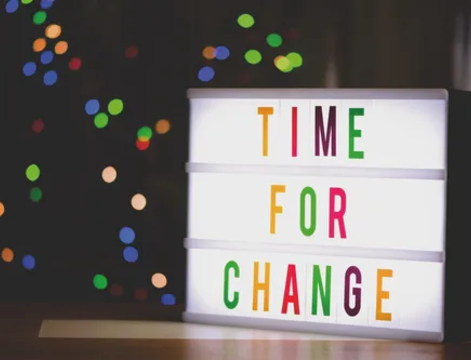
Update on the strategies adopted by the FVG AR in the cultural and creative sector.
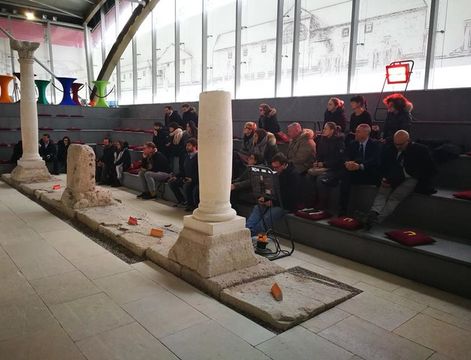
Implementation of the CRE:HUB action plan in Centru Region

Rethinking of community spaces and setting up the Creative Platform